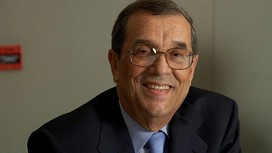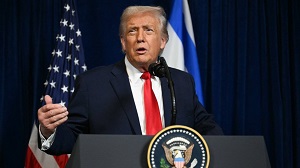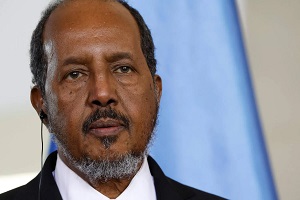Samih Darwazah, pharmaceuticals entrepreneur, 1930-2015

Financial Times
Darwazah was marked out for success from the age of 10, when he became the youngest child to attend the Arab College of Jerusalem, run by the British government for the brightest Palestinian children. The school closed when the Arab-Israeli war struck in 1948 and Darwazah fled to Jordan with his family and hundreds of thousands of other Arabs in an exodus known as the Nakba, or catastrophe.
His academic strength won him a place at the American University of Beirut, where a degree in pharmacy sowed the seeds of his future career. A Fulbright scholarship took him to America, where he studied at the St Louis College of Pharmacy before joining Eli Lilly, the US drugmaker, in 1964. He spent the next 12 years with the company in positions of rising responsibility around the world.
Seeing the huge unmet demand for affordable healthcare in his home region, he decided to abandon the expensive, patent-protected drugs of big pharma and set up Hikma in Amman, Jordan, with $1m of capital to produce low-cost generic medicines.
His son, Said, who succeeded his father as chief executive in 2007, recalls how the idea of a local drug manufacturer was initially met with scepticism. “People didn’t trust our products, so we invited the FDA [the US drug regulator] to inspect our facility. When they gave us a clean bill of health we sent a copy of the letter to every doctor in Amman.”
As well as Said, Darwazah is survived by his wife, Samira, who he met at university in Beirut, and three other children.
£4bn
Pharma blue-chip Hikma Pharmaceuticals’ market capitalisation
While Eli Lilly had given him industry experience, Darwazah attributed much of his success to the entrepreneurial flair inherited from his own father. When exports to Syria were threatened by an economic crisis in the 1980s, he accepted peanuts and sought-after Syrian marble as payment instead of hard currency. The commodities were then sold on at a profit.
Once established as the dominant regional pharmaceuticals company, Darwazah set his sights on global expansion. “He told me to go to the US and don’t come back until you’ve bought a company,” recalls Said. “I said, ‘Dad, how is a little company like ours going to compete in America?’ But anything was always possible to him.”
Today, the company is one of the world’s biggest makers of injectable medicines, with almost $1.5bn in revenues last year and 7,000 employees. Rivals include Hospira, the US company in the midst of a $17bn takeover by Pfizer.
Hikma’s success made Darwazah a prominent figure in Jordan. He had a spell as energy minister and was later a senator and an economic adviser to the king. His philanthropic efforts included the creation of a school for girls in a poor part of southern Jordan. “He saw that the south had lots of mineral resources but little education for its young people — especially the girls,” says Said.
“He was a very soft man but also a very hard man. He would help anyone. But when there was a job to do he expected it to be done properly and he would let you know if he was not happy.”
Latest News
-
 Syria reveals new post-Assad banknotes
Syria reveals new post-Assad banknotes
-
 Hamas Armed Wing Refuses to Surrender Weapons, Confirms Spokesman Killed by Israel in August
Hamas Armed Wing Refuses to Surrender Weapons, Confirms Spokesman Killed by Israel in August
-
 Trump says 'hell to pay' if Hamas fails to disarm in short period
Trump says 'hell to pay' if Hamas fails to disarm in short period
-
 Somali President to Visit Türkiye After Israeli Recognition of Somaliland
Somali President to Visit Türkiye After Israeli Recognition of Somaliland
-
 Syrian Army Enters Latakia, Tartus after Attacks by Regime Remnants
Syrian Army Enters Latakia, Tartus after Attacks by Regime Remnants